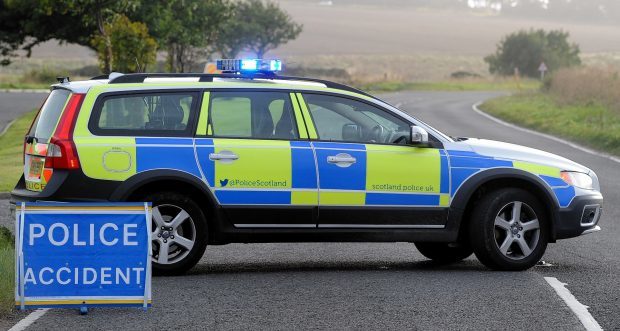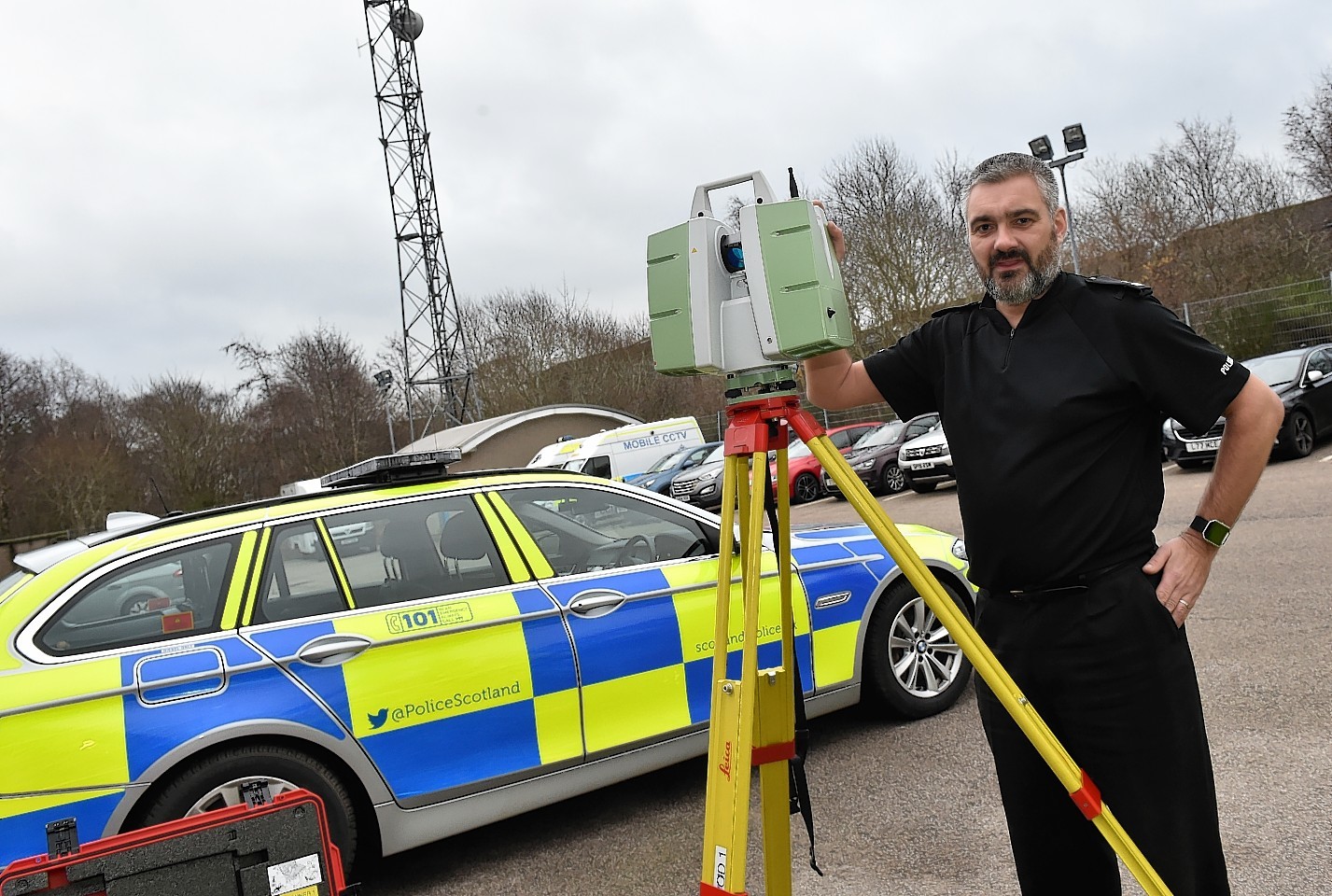It is the worst nightmare of any parent – a knock on the door in the middle of the night, a police officer on the doorstep.
And while they step inside to break the news that there has been a fatal or serious crash, their colleagues in the roads policing team are already trying to piece together what happened.
Collision investigators are immediately sent to the scene, tasked with establishing what caused the tragedy.
Constable Graham Mutch has been an investigator for 12 years, and has served with the roads policing unit for 14 years.
He is the only permanent member of the team, with the other 11 also working as traffic patrol officers.
While he is primarily based at Inverurie, when a serious crash happens he can be sent anywhere in the north-east and is often one of the first on the scene after the initial emergency services response.
The work to establish what led to the crash begins almost immediately, even if casualties have still to be taken away from the scene.
Constable Mutch said: “When we attend the scene we are looking for physical evidence, we’re looking for the position of vehicles, position of casualties, victims if they’re still there, often injuries to victims.
“We’re looking at marks on the roads, whether that will be gauges, scratches, furrows across grass – we’re looking for any evidence which will assist us in reconstructing what has happened at the collision.
“Most often what we bring to it is through the examination of the physical evidence, where we’re able to reconstruct what’s happened at the scene.
“We can also look at witness evidence in the subsequent weeks after the collision and tie that into the physical evidence we’ve found at the scene, or maybe suggest that the witness may not be 100% accurate.”
Officers can calculate the speed which a vehicle was travelling – though this is becoming less prevalent due to anti-brake locking systems – and also whether someone was not wearing their seat belt.
Over the years this has become a particular frustration for Constable Mutch, who has said there are a number of deaths that could have been prevented had the crash victim fastened up.
“The vast majority of the time collisions have occurred because of driver error,” he added.
“I’m not saying anyone is driving dangerously intentionally, but there is definitely a significant degree of people not paying proper attention.
“Other than people driving totally out of control, people can avoid collisions by taking more care, by sticking to the speed limits, by not drink-driving, and not using mobile phones.”
And it is those situations where a horror crash could have been avoided that are the most difficult for Constable Mutch and his fellow officers to deal with.
He said: “When it’s clear evidence of carelessness causing terrible injuries or worse it’s very frustrating and heartbreaking at times for us to go along to these scenes.
“In order to do the job, I suppose to a degree we all have to shut things out, and the guys that are in the collision investigation and the inquiry team have dealt with some terrible things.
“I would never say I’ve got used to going to them but I deal with them because it’s part of my job.
“The most tragic ones are where we can clearly see this could have avoided.”
But the constable said the support network for officers is a lot stronger than it was when he started out as an officer.
“The stuff we do sometimes isn’t normal and there isn’t an issue with coming to one of your supervisors and saying ‘I’m not having a good time with this’ – I think there is far more emphasis on supporting this than there was when I first started,” he added.

